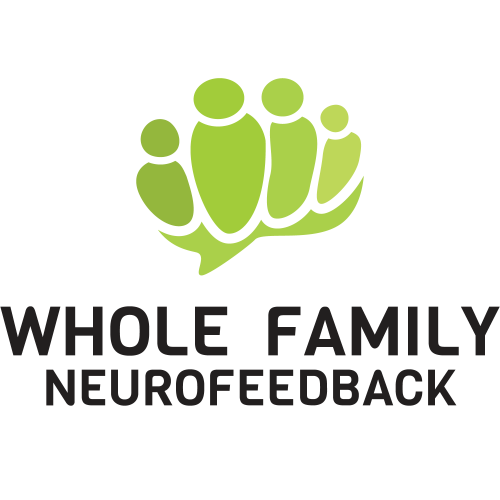Having kids with special needs brings on a unique set of challenges. Every child with special needs is different – they need different supports, medical care, and therapies. There are appointments, meetings, and medication changes. You may find that doing conventional therapies only brings you so far. Many families turn to neurofeedback, a technology that gives you feedback on the brain’s electrical patterns. Over time, you can train your brain to feel more relaxed and calm which helps you handle life’s challenges. Using neurofeedback can be a great addition to the current supports you have in place for your child with special needs. Many families like using NeurOptimal® neurofeedback because it can be done at home while listening to music or watching a movie. Today, we want to answer the question, “can neurofeedback help kids with special needs“? We’re going to discuss how NeurOptimal® supports kids with special needs and show you how it helped one family.
What Can Neurofeedback Help With?
Neurofeedback can help with common challenges kids with special needs have. Many people use neurofeedback if they’re living with:
- ADHD
- Autism
- Sensory processing disorders
- Dyslexia and other learning differences
- Intellectual disabilities
- Neurodiversity
Many people find that neurofeedback helps with:
- Focus and attention
- Promoting healthy sleep habits
- Becoming more flexible
- Increased mental and emotional resilience
- Managing stress
- Enhancing learning capacity
- Promoting emotional regulation
If you have a child with special needs, you may find that you’re working towards many of these goals, with many different supports in place. For some families, neurofeedback can be the tool that helps put all the pieces together.
Meet Gabriella – Single Mom of Four
Gabriella is a single mom of four kids– two with special needs and are nonverbal. She tried neurofeedback because she felt she needed something more, because conventional therapies only took them so far. Gabriella felt that there was always something lacking. She was looking for the “missing piece of the puzzle” to help unlock her kids’ potential. She heard about neurofeedback but was hesitant at first. She did some research but it wasn’t until someone she knew and trusted tried neurofeedback that she decided to give it a try.
Before neurofeedback, her kids were struggling with:
- Severe frustration
- Focus and attention
- Physical aggression – biting and hitting
- Meeting goals in school
She started using NeurOptimal® for one of her kids and saw improvements in:
- Sleep habits
- Behavioral problems
- Focus and attention
- Feeling more calm and relaxed
- Problem-Solving
- Gross motor skills
After seeing these improvements, Gabriella felt it was important for the rest of the family to do neurofeedback. She realized that she found something that put all of the pieces together. She likes that NeurOptimal® works with the whole person rather than just parts of them. So much of conventional approaches to helping kids with special needs are segmented. You have OT, PT, speech therapy, special education teachers, counselors, and medical doctors. But they all just work with a part of your child. All of these supports are extremely important to your kids’ quality of life and development but Gabriella found that NeurOptimal® was able to bridge the gap between all of these different therapies and help them participate more in them.
Now, Gabriella sees significant improvements in her kids’ ability to:
- Express themselves
- Focus at school
- Meet IEP goals
- Feel more calm and relaxed
- Have increased self-awareness
She also noticed that her daughter has fewer seizures and when she does have them, she bounces back much more quickly. She says NeurOptimal® takes the edge off their struggles and makes any challenges they face easier to handle. Gabriella feels that NeurOptimal® is a “reset button for life” and helps her family’s nervous system calm down so they aren’t stuck in fight or flight mode.
Neurofeedback – A Long-lasting Support for Special Needs
Although Gabriella has seen significant improvements in her family, it’s important to note that it wasn’t an overnight success. Neurofeedback is a tool that can be used to help your family to feel more calm and more relaxed which helps you work through life’s challenges. Everyone is different and it can take a few sessions to see improvements.
During the first eight sessions, Gabriella saw a slight increase in behavior issues but she kept going. Then, she noticed that her kids felt more relaxed and calm so when issues did come to the surface, they were better equipped to deal with them.
Neurofeedback is a great tool that can help support you alongside other interventions and therapies. Three years later, Gabrella and her kids still do NeurOptimal® and she has seen a huge benefit in the whole family doing it. We focus a lot on our kids’ behavior but how a parent reacts to life’s challenges and struggles is just as important. NeurOptimal® can help you build resilience. As Gabriella says “You’re going to have ups and downs but if you build resilience, you can move beyond it.”
Neurofeedback has helped Gabriella have a different perspective and a different approach. “As a mother, you have to wipe away any preconceived notions of what success with your child looks like.” She learned this when she surrendered control and trusted the neurofeedback process. She says “The brain will prioritize what is most important. The brain will never disappoint you.”
Is NeurOptimal® Neurofeedback Good For Kids With Special Needs?
NeurOptimal® is the first non-linear neurofeedback, which means you don’t have to rely on a practitioner to make changes. The technology is so advanced that it allows your brain to tap into its natural instinct toward resilience and flexibility. It helps your brain find its optimal state and it works with everyone as an individual. No two people are the same and anyone who does it will only receive feedback that they need. It optimizes how your brain works for you.
NeurOptimal® neurofeedback is popular for kids with special needs because it’s:
- Safe
- Effective
- Non-invasive
- Doesn’t require a medical diagnosis
- Convenient, it can be done at home
- Effortless: They can brain train while listening to music or watching a movie
If you’re wondering if neurofeedback can help your child with special needs, I’d love to answer your questions and talk more about if it’s right for you. You can reach me at miriam@wholefamilyneurofeedback.com.

